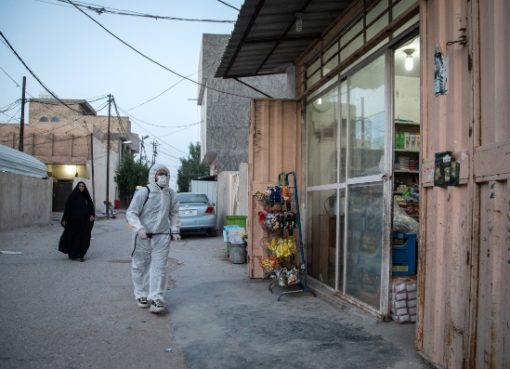The fall in crude oil prices combined with Iraq’s ongoing war against the ISIS have brought much needed oil production projects aimed at nourishing and sustaining the oil industry in Iraq to an aggressive halt.
While plans to expand output to more than 4 million barrels a day by injecting seawater from the Persian Gulf into southern oil fields to extract remaining oil resources was planned to begin immediately, the delay to complete this project means it will not be finalised until 2020, therefore production in southern oil wells is expected to fall some 10% in coming months explains Michael Cohen, Head of Energy Commodities Research at Barclays.
Bureaucratic infighting, ethnic and sectarian tensions have had a severe effect on the hopeful project titled Common Seawater Supply Facility which was planned to transform Iraq’s position in the global oil market.
“The common seawater injection project is a microcosm of all of the different challenges that Iraq is going to need to overcome,” said Raad al-Kadiri, the managing director for Petroleum Sector Risk at IHS Energy, a Colorado-based energy consultancy.
This is just an example of the failed and stymied projects of Iraq’s oil dependant government. The fate and eventual success of the Iraqi oil industry is dependant on the government’s ability to restore political stability, which is funded by oil production.
Oil Ministry officials warned in a September 6th letter to international oil companies operating the country’s energy sector, that government spending for the sector will be cut in 2016. Prior to this, spending was halved for Baghdad, severely affecting the budget for maintenance and improvement of the country’s oil fields, ports and pipelines.
To further add to Iraq’s woes, a dispute with the KRG concerning a deal to market its oil through the central government have added strain and distrust and therefore has cost Baghdad much needed funds.
Having just paid $9 billion to International Oil Companies for late payments due in 2014, The Ministry of Iraq are going to owe in excess of a further $8 billion by the end of the year. In a desperate attempt, Iraqi lawmakers are now considering settling Baghdad’s debt to foreign oil operators in Iraq with oil rather than cash.
In September oil sales in Iraq made US$3.7 billion for the government, and with 95% of the country’s income generated through oil exporting, the Iraqi Ministry of Oil needs to find a solution to ensure the industry continues to grow.
Source: Mason Johnson, Rebuilding Iraq, Linkedin, 1. Okt. 2015
https://www.linkedin.com/pub/mason-johnson/64/925/409?trk=pulse-det-athr_prof-art_hdr








Important topic for sustainable progress & development in IRAQ. How much oil production is already controlled by ISIS?
How much by Kurdish forces?
gerd kloewer